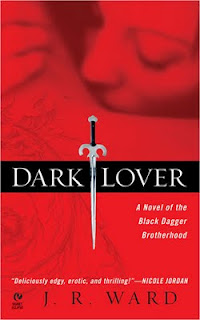It's guest Monday time and today author Suzanne Johnson lets us in on her writing process. I always find it fascinating to hear how other people work. It's amazing how there are so many different paths to get to a finished novel. I hope you find it fascinating as well.
BLOG TOUR ALERT: And coincidentally, today I'm talking about My Crazy Writing Process at the Wytch's Mirror. Guess Suzanne and I had the same thing on our minds, lol.
Also, I'm at the Writerspace blog talking about people's perceptions of me: The Girl Next Door Writes Erotic Romance
Take it away, Suzanne....
So...INITIAL IDEA is something that usually starts bouncing around in my head while I'm driving or doing something not writing-related. I brainstorm on it a while before anything hits paper (or computer screen). I tend to start with a "big idea" and then build the characters around it. I don’t consider this part of my 90-day-to-novel process since nothing’s written down at this stage.
DRAFT ZERO...I do a down-and-dirty draft, start to finish, using my outline as a guide but improvising as things come to me (updating the outline as I go). I call it “draft zero” because it’s so bad it doesn’t even deserve to be called a first draft. Nobody, but nobody, sees this one except me. When I sit down to write, I read over the last two or three paragraphs from the previous day, but no more. I don't do descriptions, setting, or worry about word choice--I'm strictly working on plot and pace. I don't stop to look up words or names of things. When it’s done, my Draft Zero usually runs about 75,000-80,000 words long. My strong suit is grammar/punctuation so that part of it's going to be pretty clean even in DRAFT ZERO stage. It takes from eight-to-ten weeks for me to draft since I work full-time and have freelance obligations that can’t be shirked.
FIRST DRAFT...I take a week to do a thorough front-to-back read. I smooth over rough spots. I add description and dialogue according to a set of questions (i.e., is the character dressed? are there sensory inputs? can the scene be amped up?). By the end of this stage, I should have the manuscript at or near my contract-required 90,000 words. If not, I need to brainstorm ways to add or expand scenes.
At this stage, if I'm on an accelerated deadline, I send the manuscript to beta readers. While they read, I polish. I look at word choice, sentence structure, rhythm, pace. I consider/incorporate suggestions or ideas as they come in from betas. My poor betas have to read quickly, I’m afraid.
FINAL POLISH. I do a final pass, reading aloud when possible, to tinker with anything that doesn't ring true to my characters or story. And off it goes.
Suzanne Johnson is an author of urban fantasy “with romantic elements.” Her first book, Royal Street, a magic-based fantasy set in New Orleans at the time of Hurricane Katrina, will be released by Tor Books on April 10, 2012. Two more in the series will be released in Fall 2012 and Spring 2013. Find Suzanne online at her Preternatura blog, or read about her books at her website.
*Look for more from Suzanne here every 3rd Monday of the month!
"Hot and romantic, with an edge of suspense that will keep you entertained.” --Shayla Black, New York Times Bestselling author of SURRENDER TO ME
CRASH INTO YOU is now available!
Read an excerpt here.
All content copyright of the author. Please ask permission before re-printing or re-posting. Fair use quotations and links do no require prior consent of the author. ©Roni Loren 2009-2012 |Copyright Statement|



